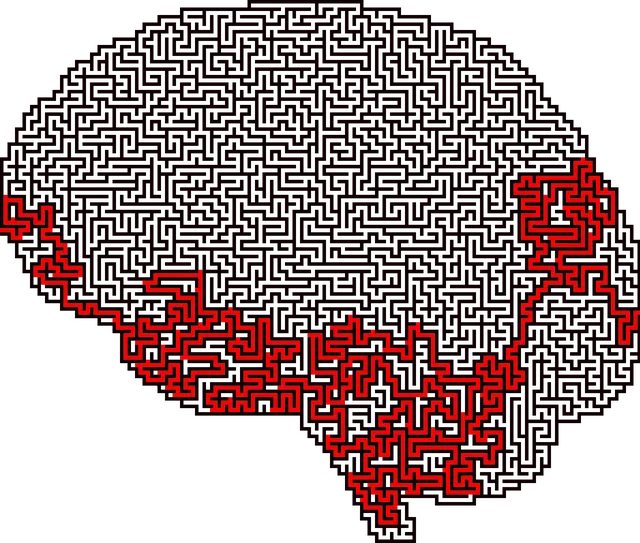Wheat Ridge Kaiser Permanente leads community outreach efforts to enhance mental healthcare accessibility, offering tailored programs that address diverse needs. By identifying unmet mental health requirements in specific neighborhoods and tailoring strategies, they foster emotional well-being through education, skills training, and cultural sensitivity. Their initiative includes workshops, literacy enhancement, and accessible resources like the Wheat Ridge Kaiser Permanente mental health number, empowering residents to take charge of their mental health. Success is measured through evaluation, ensuring continuous improvement and a data-driven approach that fosters healthier communities.
Community outreach programs, like those implemented by Wheat Ridge’s Kaiser Permanente, play a pivotal role in enhancing mental health services accessibility. By targeting underserved communities, these initiatives bridge the gap between care and those in need, particularly crucial for Wheat Ridge residents. The article delves into the multifaceted approach, from understanding community needs to designing effective strategies and measuring success. Exploring Kaiser Permanente’s model, including their promotion of mental health services, offers valuable insights for improving overall well-being.
- Understanding Community Outreach Programs: Their Role and Impact
- Identifying Target Communities for Mental Health Services
- Designing Effective Outreach Strategies for Wheat Ridge Residents
- Implementing and Promoting Kaiser Permanente's Mental Health Services
- Measuring Success: Evaluation and Continuous Improvement
Understanding Community Outreach Programs: Their Role and Impact

Community outreach programs play a pivotal role in bridging the gap between healthcare services and individuals who may otherwise face barriers to access. These initiatives, such as those offered by Wheat Ridge Kaiser Permanente, focus on bringing mental health resources directly into communities, addressing a critical need in many areas. By implementing programs that cater to unique community dynamics, organizations like Kaiser Permanente can significantly impact residents’ well-being.
Outreach goes beyond simply providing information; it involves fostering connections and offering support tailored to local needs. For instance, they might organize workshops on mental wellness journaling exercises or conflict resolution techniques to empower individuals with effective stress management tools. These programs not only enhance mental health literacy but also create a sense of community, encouraging open dialogue about sensitive topics. Through such initiatives, organizations can ensure that essential services reach diverse populations, fostering healthier and more resilient communities.
Identifying Target Communities for Mental Health Services

Identifying communities with unmet mental health needs is a crucial step in designing effective outreach programs. This process involves comprehensive research to pinpoint areas where access to services like those provided by Wheat Ridge Kaiser Permanente, known for its commitment to mental well-being, is limited. Consider factors such as socio-economic status, cultural barriers, and the prevalence of mental health disorders within specific neighborhoods. For instance, focusing on urban areas with high poverty rates or rural regions lacking specialized healthcare facilities can ensure that services reach those most at risk.
By understanding the unique challenges faced by these communities, organizations can tailor their outreach strategies. Implementing programs that promote emotional intelligence and social skills training, as offered by Wheat Ridge Kaiser Permanente, can foster a sense of belonging and improve overall mental health literacy. This targeted approach not only addresses immediate needs but also empowers community members to become advocates for their own well-being, creating a sustainable impact.
Designing Effective Outreach Strategies for Wheat Ridge Residents

In designing effective outreach strategies for Wheat Ridge residents, it’s crucial to understand and cater to the unique needs and demographics of the community. Kaiser Permanente’s mental health services in Wheat Ridge aim to bridge the gap between healthcare access and community engagement. By integrating Burnout Prevention Strategies for Healthcare Providers into their outreach, they can foster a more supportive environment. This involves promoting Cultural Sensitivity in Mental Healthcare Practice, ensuring that services are accessible and respectful of diverse cultural backgrounds.
A key aspect of successful outreach is emphasizing positive thinking and resilience. Encouraging residents to participate in community programs can boost mental well-being and create a network of support. The Wheat Ridge Kaiser Permanente mental health number serves as a vital resource, providing easy access to necessary services. Through targeted initiatives, the community can be empowered to take proactive steps towards better mental health, ultimately enhancing overall community well-being.
Implementing and Promoting Kaiser Permanente's Mental Health Services

Kaiser Permanente’s commitment to mental health services is evident through its comprehensive Community Outreach Program. The initiative aims to promote well-being and accessibility by educating residents about available resources, focusing on underserved communities in Wheat Ridge and beyond. By designing Mental Health Education Programs tailored to diverse audiences, they foster an environment where individuals feel empowered to seek support.
Effective communication strategies are at the core of this successful implementation. The Wheat Ridge Kaiser Permanente mental health number serves as a central point of contact, allowing community members to easily access information and services. Through partnerships with local organizations and utilizing various media, the program ensures that valuable resources reach those who need them most. This multi-faceted approach contributes to increased awareness, breaking down barriers to mental healthcare access.
Measuring Success: Evaluation and Continuous Improvement

Measuring success is a critical aspect of any community outreach program, especially when addressing mental health initiatives like those offered by Wheat Ridge Kaiser Permanente. Evaluation allows for understanding the impact and effectiveness of programs, ensuring resources are allocated efficiently. By employing robust assessment tools, organizations can track progress and identify areas that require improvement. This data-driven approach enables them to refine strategies and tailor services to better meet community needs.
Continuous improvement is key to long-term success in community outreach. Utilizing feedback from participants, healthcare professionals, and other stakeholders, programs can evolve to incorporate evidence-based practices like Emotional Well-being Promotion Techniques and Mind Over Matter Principles. Additionally, focusing on Stress Management strategies ensures that the initiatives remain relevant and impactful over time, fostering a healthier and more resilient community.
Community outreach programs, such as those implemented by Wheat Ridge’s Kaiser Permanente, play a pivotal role in addressing mental health needs within specific communities. By identifying target populations and designing tailored strategies, organizations like Kaiser Permanente can effectively reach individuals who may be reluctant to seek help. The successful implementation of these programs, coupled with robust evaluation methods, ensures that services are continually improved to better serve the mental health needs of Wheat Ridge residents. This comprehensive approach not only enhances access to care but also fosters a healthier and more resilient community overall.






